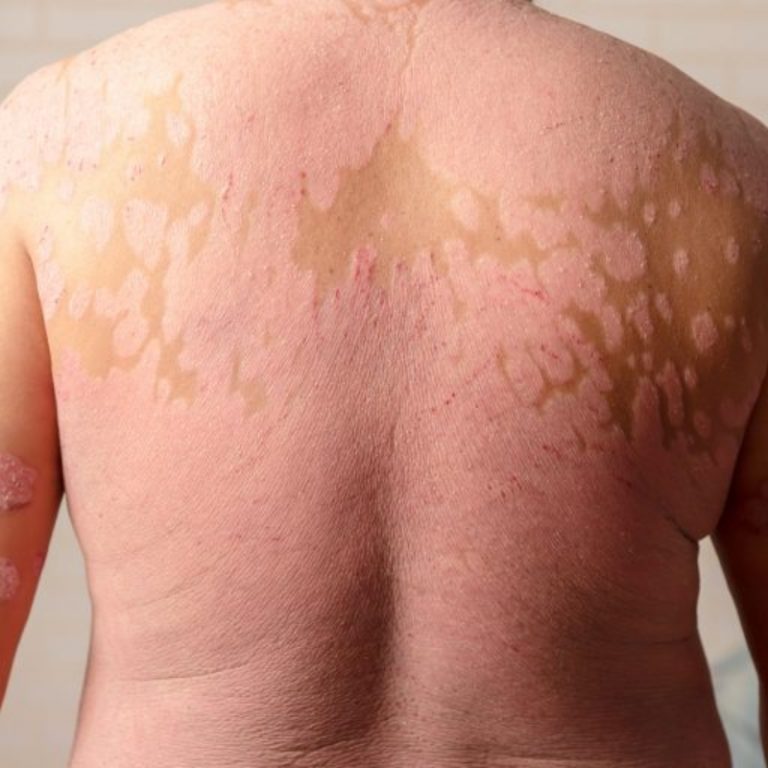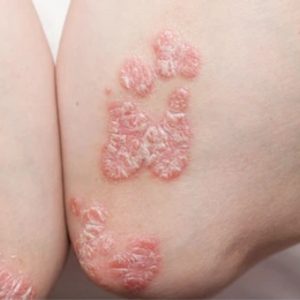Want to save 25%? Check out our Subscriptions!
Psoriasis is a persistent, perplexing, and painfully evident skin condition that affects millions worldwide. This blog aims to demystify psoriasis, shedding light on its history, symptoms, causes, and how those affected can manage it. Understanding psoriasis is the first step toward effective management and finding a semblance of peace amidst its challenges.
It is an autoimmune condition characterized by the rapid buildup of skin cells, leading to scaling on the skin’s surface. These scales typically appear as red, inflamed patches that can crack and bleed. There are several types of psoriasis, including plaque psoriasis, the most common form, along with guttate, inverse, pustular, and erythrodermic psoriasis. Each type presents unique challenges and symptoms, making personalized treatment plans essential.

Robert Willan stands out as the pioneering physician who first made the distinction between psoriasis and other comparable skin conditions. Psoriasis has been recognized for centuries, with its name likely derived from the Greek word ‘psora,’ meaning itch. Historical texts describe conditions resembling psoriasis, indicating an awareness of such skin afflictions even in ancient times.
The understanding of and treating psoriasis have evolved significantly, from herbal remedies to the advanced biological therapies available today. This journey from mysticism to medicine highlights humanity’s relentless pursuit of knowledge and relief for those affected
The symptoms of psoriasis can vary widely depending on the type but generally include red patches of skin covered with thick, silvery scales, dry, cracked skin that may bleed, itching, burning, or soreness, and thickened, pitted, or ridged nails. These symptoms can range from mild to severe and affect any body part, most commonly the knees, elbows, scalp, and trunk.

The exact cause of psoriasis remains unknown, but it is believed to be a combination of genetic predisposition and environmental factors. Triggers such as stress, skin injuries, certain medications, and infections can initiate or exacerbate the condition. The immune system plays a crucial role, with T cells attacking healthy skin cells by mistake, accelerating skin cell production.
Diagnosis typically involves a physical examination of the skin, nails, and scalp. Sometimes, a biopsy may be performed to rule out other skin disorders. Early diagnosis and treatment can help manage the symptoms and prevent the condition from worsening.
Psoriasis treatment varies based on the severity and type of psoriasis. Options include topical treatments, such as creams and ointments; systemic medications that affect the entire body; and light therapy, which uses natural or artificial ultraviolet light. Additionally, lifestyle and home remedies, such as moisturizing, quitting smoking, and managing stress, can help alleviate symptoms.
Living with psoriasis can be challenging, not only physically but also emotionally and socially. A daily management routine can help control symptoms, while support from friends, family, and support groups can address the emotional impact. Awareness and education can also reduce stigma and misunderstanding surrounding the condition.
While there is no surefire way to prevent psoriasis, managing triggers and leading a healthy lifestyle can minimize flare-ups. Regular medical check-ups are crucial for monitoring the condition and adjusting treatment plans.
Psoriasis, with its deep historical roots and modern-day challenges, is a complex condition that affects millions worldwide. Yet, through understanding, innovation, and community support, those affected can navigate the challenges and find pathways to a fulfilling life beyond their skin condition. Together, we can foster a world where psoriasis is not an obstacle but a manageable part of life.
Welcome to Amazing Ointments – your premier destination for top-tier skincare solutions. Our journey began with a clear purpose: to provide a natural and effective alternative for those grappling with various skin conditions.